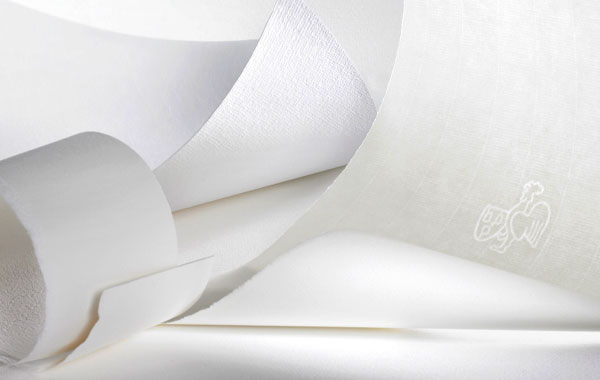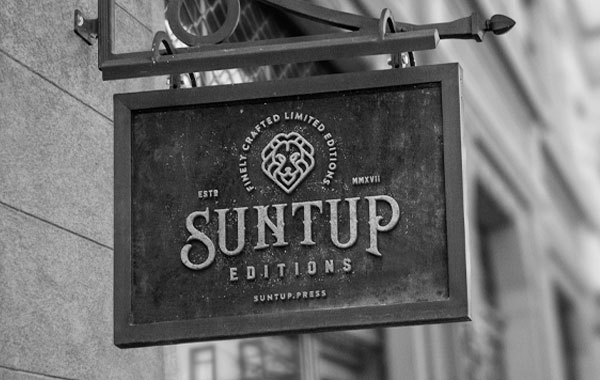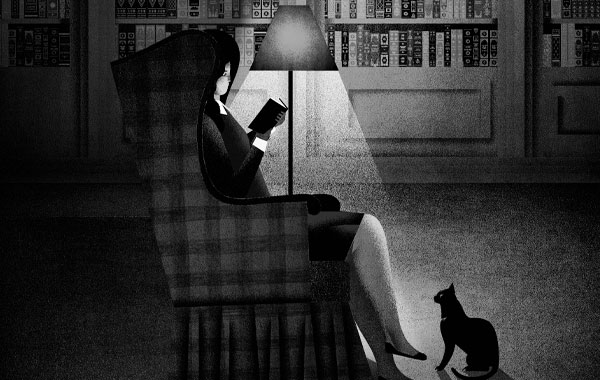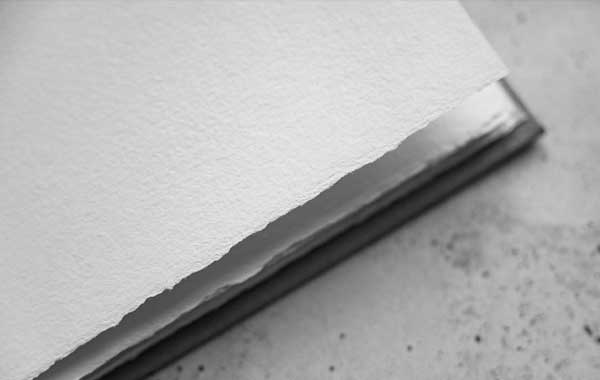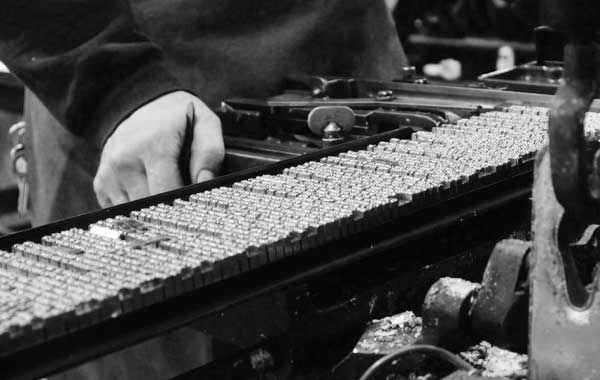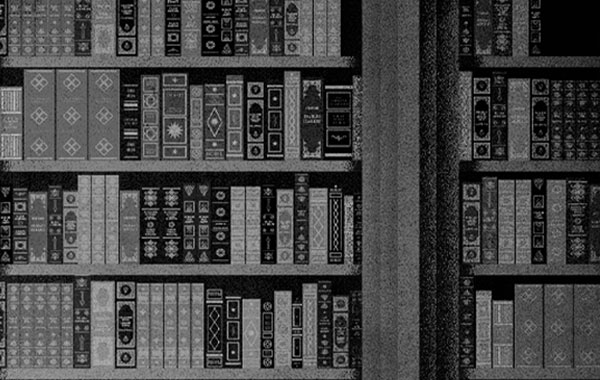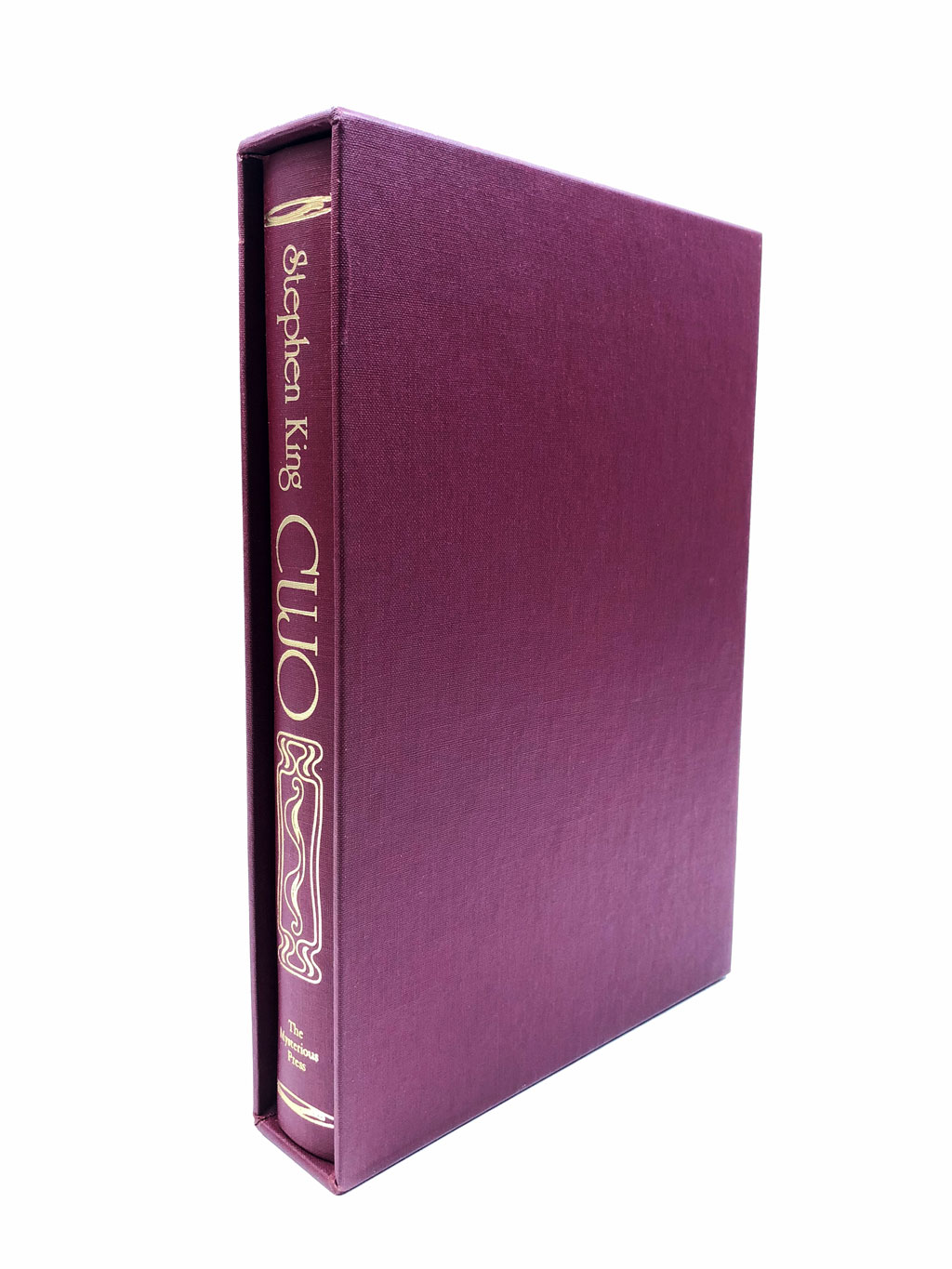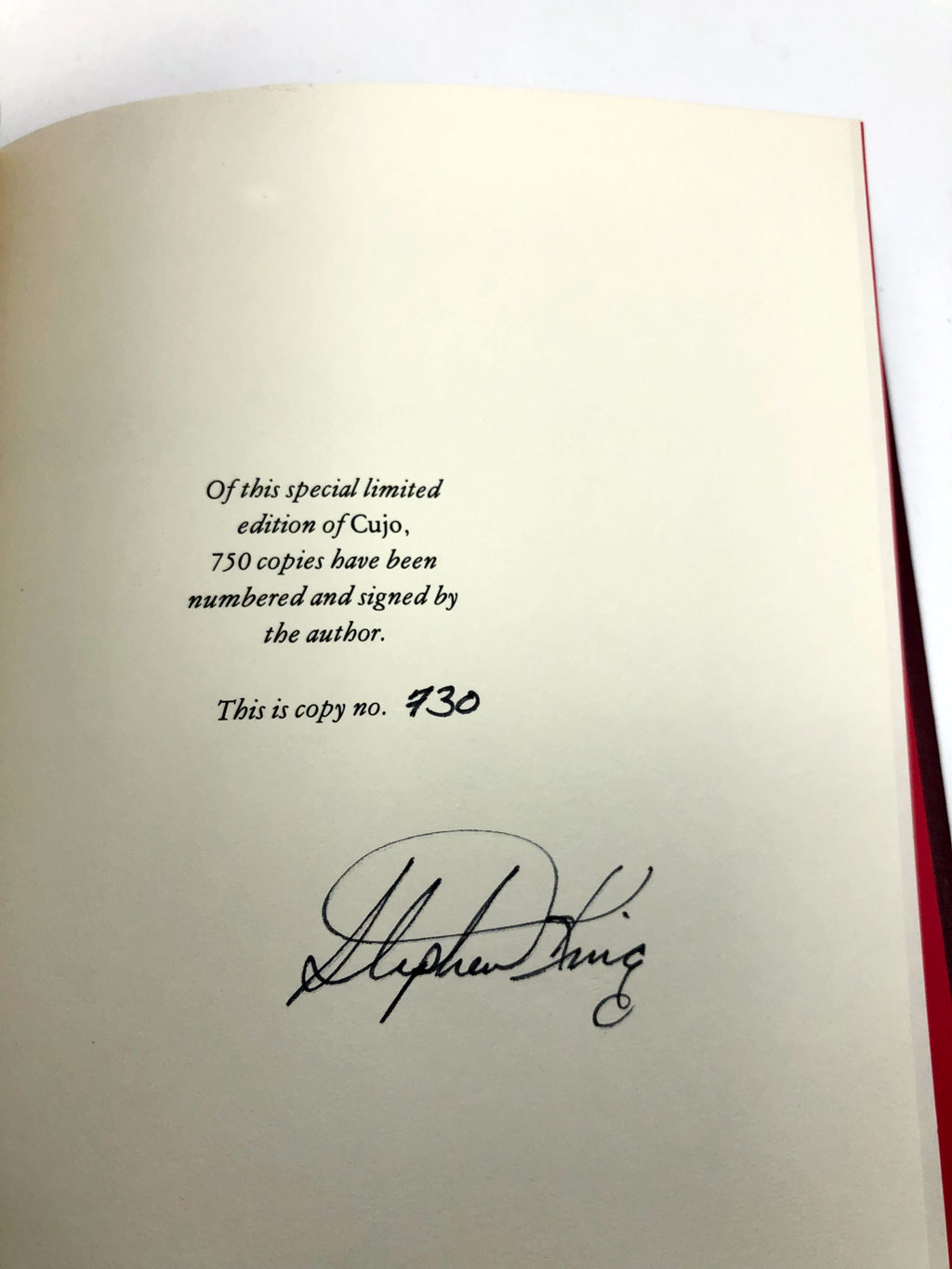A Look Back at Otto Penzler’s Special Edition of CUJO, And How It Saved His Publishing House
November 10, 2017
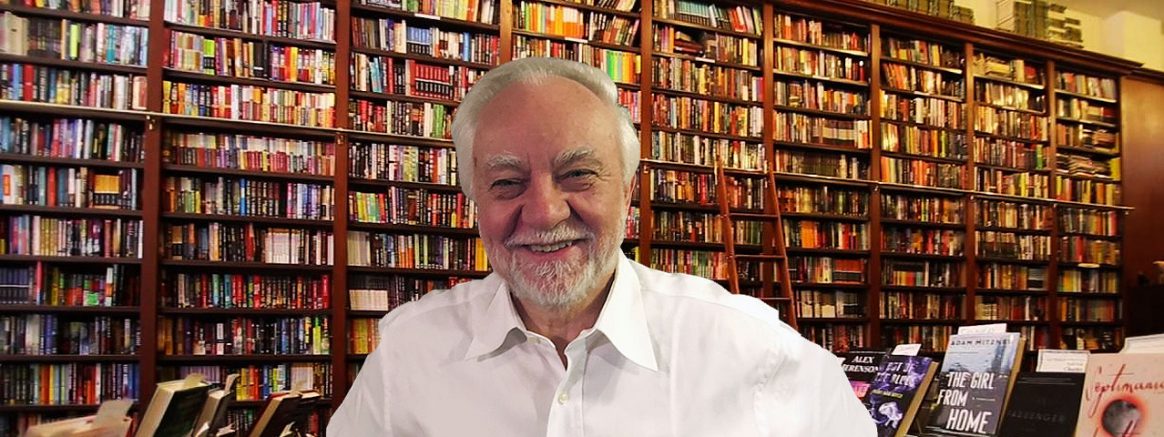
It was a pleasure to have interviewed publisher and The Mysterious Bookshop proprietor Otto Penzler. We talked about Otto’s press, and his work on the limited edition of Stephen King’s Cujo.
Otto Penzler is the proprietor of The Mysterious Bookshop in New York City, and founded The Mysterious Press in 1975, which now publishes original books as an imprint at Grove/Atlantic in the United States and Head of Zeus in the U.K., as well as classic crime fiction through MysteriousPress.com. He served as the host for Turner Classic Movies for its “Month of Mysteries” in 2002. Penzler has won two Edgar Awards, for Encyclopedia of Mystery and Detection in 1977 and The Lineup in 2010. The Mystery Writers of America awarded him the prestigious Ellery Queen Award in 1994 and the Raven in 2003. He has been given Lifetime Achievement awards by Noircon and The Strand Magazine.
PS: So, you published the limited edition of Cujo. How did that project come about?
OP: Well, it was 37 years ago, so it’s hard to remember precisely, but my recollection is that I got a phone call one day from Stephen King. I knew who he was at the time, but we had not met, and he was doing a kind of blessing to small presses, and he called different small presses, including The Mysterious Press, and said, would you like to do a limited edition of my next book. Unsolicited, and out of the blue. Of course, I said yes. It was at the height of the Stephen King collecting era. So that is how we did it. We talked about how many copies. He didn’t mind about how many, he just didn’t want it to be too expensive so it was priced out of the range of what most people could afford, so we settled on a very modest price, which was $65.
PS: In those days, was that high for a limited book?
OP: No, in those days it was low. A lot of limited editions were coming out at $100 or $120. He let me do so many, 750, which was a huge number for a limited edition, so I was able to keep the price down .
PS: How did the design process go?
OP: I had a very specific idea of what I wanted to do. Something that was unusual, which was to have beveled edges, which was essentially a 19th century process, I thought it would be elegant to do that and have thick cardboard covers, covered in cloth and bevel the edges. We did that, and had an artist do an illustration of Cujo that was used on the front cover. The gold spread out a little too much. I didn’t understand too well the printing process and the gold stamping. I still think it was a handsome looking book, although the dog was not a masterpiece. I’m still proud of it.
PS: Did Stephen King have any input on the design?
OP: No, he didn’t ask, and back then I was a very new publisher. It was all new to me. Nowadays, when I do dust jackets, I always want to pass it on to the author and ask what they think.
PS: How long did the whole process take?
OP: Oh, I don’t recall now. Probably took a while. I had the manuscript plenty of time before the book was published. My recollection is that I bought sheets from the publisher, rather than print my own edition. Before they were bound I made a deal with Viking, and told them I want to buy 700 or so sheets. I’m pretty sure that’s how it happened. Then I sent them to the bindery.
PS: Okay, so that’s why the book had the page block of the Viking edition.
OP: I have a little story. I didn’t know anything about publishing. I was just making this stuff up as I went along. I was a sports writer, and had no experience whatsoever in publishing, and I was losing quite a bit of money, although there was no paid staff, I was doing everything on my own and wasn’t paying myself either. So I was in debt on the previous two books. I hadn’t paid the printers bills, and I was really thinking about closing down the press when Steve called me, because I couldn’t make it. I didn’t have any money.
If it hadn’t been for Cujo, Mysterious Press would have been out of business.
The sale of the book was so robust, we sold books so quickly, and brought in so much money, that I was able to pay the previous two printer bills, and the bill for producing Cujo, and had a little money left in the bank to produce another book. If it hadn’t been for Cujo, The Mysterious Press would have been out of business. And here we are 40 years later, and it has been a fairly successful press over the years. I owe it all to Steve.
PS: That is a wonderful story, and it was important to him, to help out the small press, and that is exactly what he did.
OP: Exactly. It was an act of generosity. There was nothing I could ever do for Stephen King, you know, there was nothing Stu Schiff at Whispers Press could ever do for Stephen King. He didn’t need us, there was nothing in it for him other than doing something really nice for somebody who was struggling along.
PS: Did you work with Stephen King directly on the book, or through his editor or agent?
OP: It was just Stephen and myself, we worked directly on it. At least that is my memory, after all these years. But someone must have been involved in the process.
PS: So back then, before the internet, how did you market and sell the book?
OP: I had published about seven or eight books by that point, and back in the day, I was spending too much time doing this for a money losing proposition. I was trying to make a living. It was just a struggle. But what I did was sit down at a typewriter and wrote letters, one at a time to collectors that I knew, booksellers that I had worked with and heard about, and said, I was publishing this book. I printed up little flyers showing discounts based on volume. I hand typed the envelope and added the discount card and letter, and sent them off and hoped for the best.
PS: It brings back memories of when I started a mail order business back in the late 80’s from home, and I also had the typewriter, and made paper catalogs which I mailed out to customers who had responded to an advertisement. Those were good times.
I think the reason he gave me Cujo is because it was not horror, it was a suspense novel.
OP: In a lot of ways, it was good, some things are easier nowadays, some things are much worse. But there was a real sense of community. I was mainly a mystery store, and I think the reason he gave me Cujo is because it was not horror, it was a suspense novel. I knew all the booksellers in that world, and they knew me. Everything was slower in those days, you know, you would sit in front of a typewriter, and a week later you would get a response back.
PS: Stephen King collectors like to see and hear about behind-the-scenes material, related to the publication of Cujo, such as proofs or manuscripts, etc. Do you have anything left over from that time that we could include some photographs of?
OP: No, but because I am a collector myself, I saved everything, and Ohio State University bought The Mysterious Press archives. They bought everything, and I saved everything. I mean I saved printer bills, contracts, letters, hand-corrected manuscripts, proof copies, copy 1 and copy A.
PS: Well, you have a long career in this business, and it is wonderful you are still doing it.
OP: And loving it.
PS: Have you lost touch with Stephen over the years, or are you still in touch?
OP: We used to stay in touch all the time. My bookshop used to be on 56th street, right behind, Carnegie Hall, and whenever he came to Manhattan, which was quite a lot, he would stay at the hotel right next to my store, and he would come by, and he would buy books, and Tabitha would buy books, and we would chat for a while, and he would sign books for me, but it has been a long time since we were in touch.
PS: Well, thanks for taking the time Otto, it is very much appreciated and it was great talking to you.
OP: No problem. My pleasure.
The Mysterious Press limited edition Cujo was published in 1981 in two states. A lettered edition of 26 copies, identical to the limited edition, lettered A-Z, and a numbered edition of 750 copies. Both editions have an acetate cover and are housed in a slipcase.

